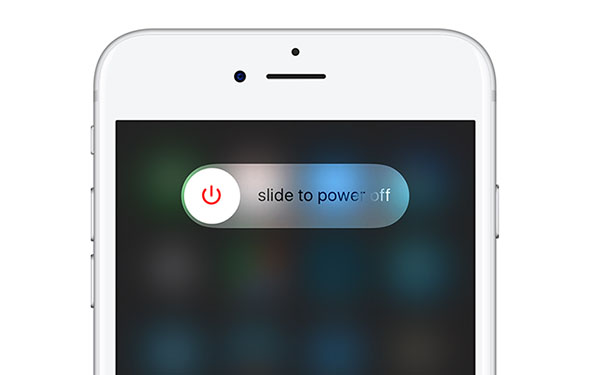On September 19, 2017, Apple officially released a major iOS update – iOS 11 for iPhone, iPad and iPod. Now, iOS 11 is available to every Apple user, and they can easily install it via over the air (OTA) or iTunes to use iOS 11 refreshed features.
However, after updating to iOS 11, an annoying issue probably happens to some users: iPhone keeps restarting randomly. What’s worse, iPhone continuously restarts and displays Apple logo, over and over again. In such case, iPhone is totally unusable. Therefore, in this post, we provide 7 basic tips that may work to fix iPhone keeps restarting in iOS 11 or iOS 10.3.3.
Also read: How to fix iPhone not charging after iOS 11/10.3.3 update.
7 Tips to Fix iPhone Keeps Restarting after iOS 11/10.3.3 Upgrade
Before you follow the below tips to fix iPhone restarting issue, you are suggested to backup your iOS device to iTunes or iCloud, in case any data loss due to some wrong actions.
1. Update apps on your iPhone
Old versions of iPhone apps may cause your device keeps restarting. So make sure your apps are up to date and check whether there are the latest versions of apps in App Store. And you need to connect to Wi-Fi for updating.
- Step 1. Open App Store and tap “Updates”.
- Step 2. If updates are accessible, just click “Update All”.
- Step 3. You need to enter your Apple ID and pass code if promoted.
2. Restart or force restart your iOS device
Usually, performing a restart is a simply and efficient way to get your iPhone iPad back to normal and stop device from weird behaviors.
To restart iPhone: long press Sleep or Wake button, slide to Power Off and then press Sleep/Wake button until you see Apple logo.

Or force restart your iPhone by by following steps below:
- On iPhone 6s and earlier: press both the Sleep/Wake and Home buttons for at least ten seconds, until you see the Apple logo.
- On iPhone 7 or iPhone 7 Plus: hold both the Sleep/Wake and Volume Down buttons for at least ten seconds, until you see the Apple logo.
3. Reset all settings
This operation resets your iPhone to factory defaults, which is a reliable solution to solve certain problems following to iOS upgrade, with no data loss. Just proceed to Settings > General > Reset > Reset All Settings.

4. Check iPhone charging port or change another cable
If iPhone restarting issue occurs during charging or connecting to computer, you need to look at Lightening charging port on the bottom of your iPhone. Check whether any dust or dirt is inside the port. If yes, try to clear them. And don’t forget to check headphone jack.
Besides, you can also change another data cable and charger, then see if restarting issue is solved.
5. Restore from a backup
Doing a whole restoration from backup will clear all your iOS data and settings, then upload backup contents to your device, which brings you a chance to eliminate some software issues that cause your iPhone keeps restarting. Please bear in mind that doing a backup is crucial before restoring.
To know detailed steps to restore from backup, you can refer the two posts: how to restore from iTunes and how to restore from iCloud.
6. Rely on iOS repair tool
After all trials, if your iPhone still keeps restarting, you are suggested to rely on some iOS repair tools like PhoneRescue to fix the issue.
7. Contact Apple Support for help
If you can’t solve the iPhone restarting issue by yourself, you can simply contact Apple Support to ask for some help.
i turned off find my iphone and then it seemed to work again for some weird reason… i turend it off since if was about to do a restore. very annoying and very weird bug. but it since to be stable now after 25/30 something reboots. crazy bug ;P
thanks for your tip. It seems “Turn off My iPhone” works to solve iPhone rebooting issue.
Seems to work only when connected to cable and reboots shortly after removing from charge and then repeatedly until battery dies…
Have you tried to update your iPhone to the latest version of iOS? now its iOS 10.3.3. I’v ever got this issue and fixed it by updating software. Read: iPhone Shuts off Randomly with Battery Left